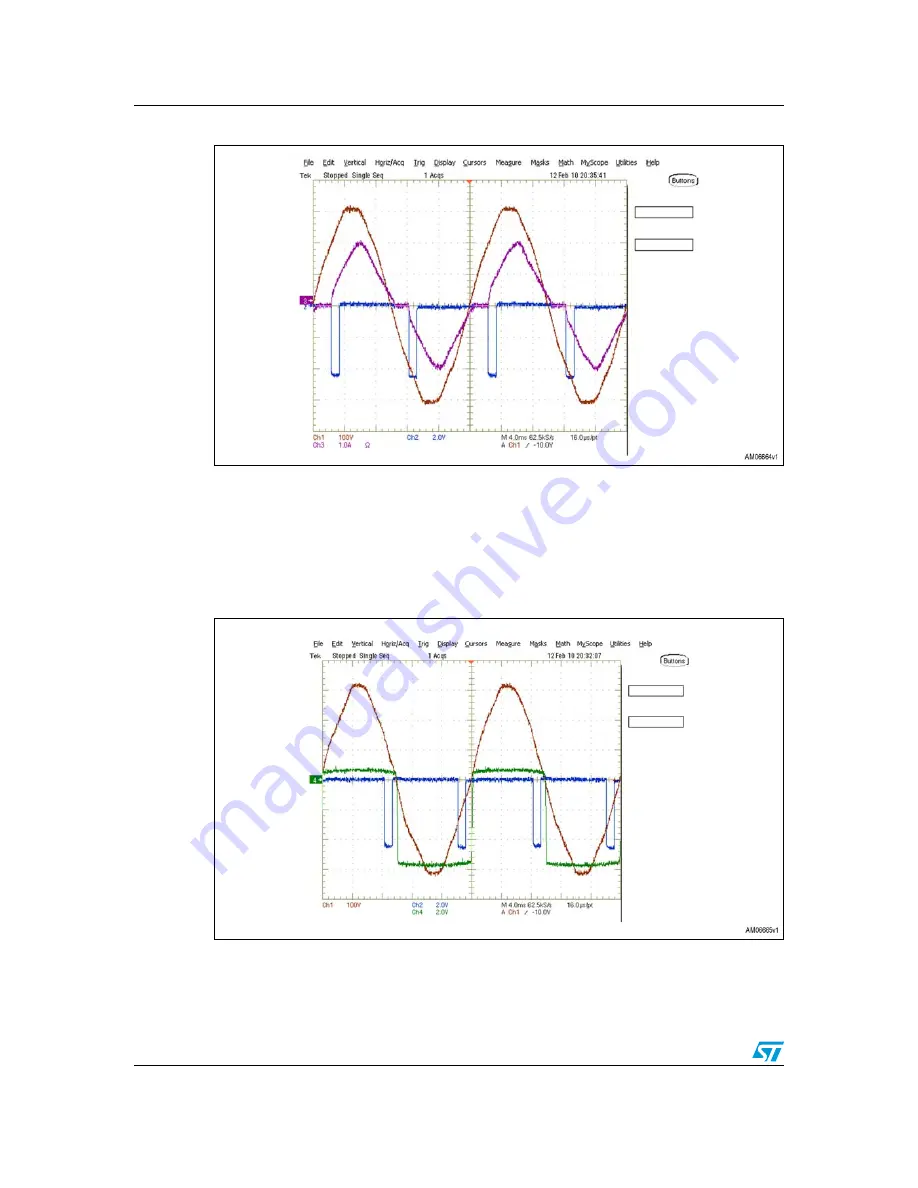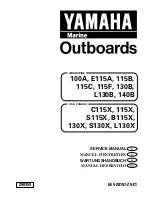
Oscilloscope waveforms
UM0922
12/23
Doc ID 17259 Rev 1
Figure 6.
Motor working at the highest power level
The gate pulse (blue) is now applied to the Triac with a firing angle of 2.5 ms with respect to
the voltage mains (brown). Once the pulse is applied, the Triac turns on and begins
delivering power to the motor. At this point the purple waveform shows a higher current
flowing through the motor.
The demonstration board is now working at level 5, delivering the maximum power to the
motor.
Figure 7.
Zero-voltage switching (ZVS)
The green waveform shows the zero-voltage switching signal (ZVS) applied to the MCU.
The signal is toggled every time the voltage mains crosses zero.







































